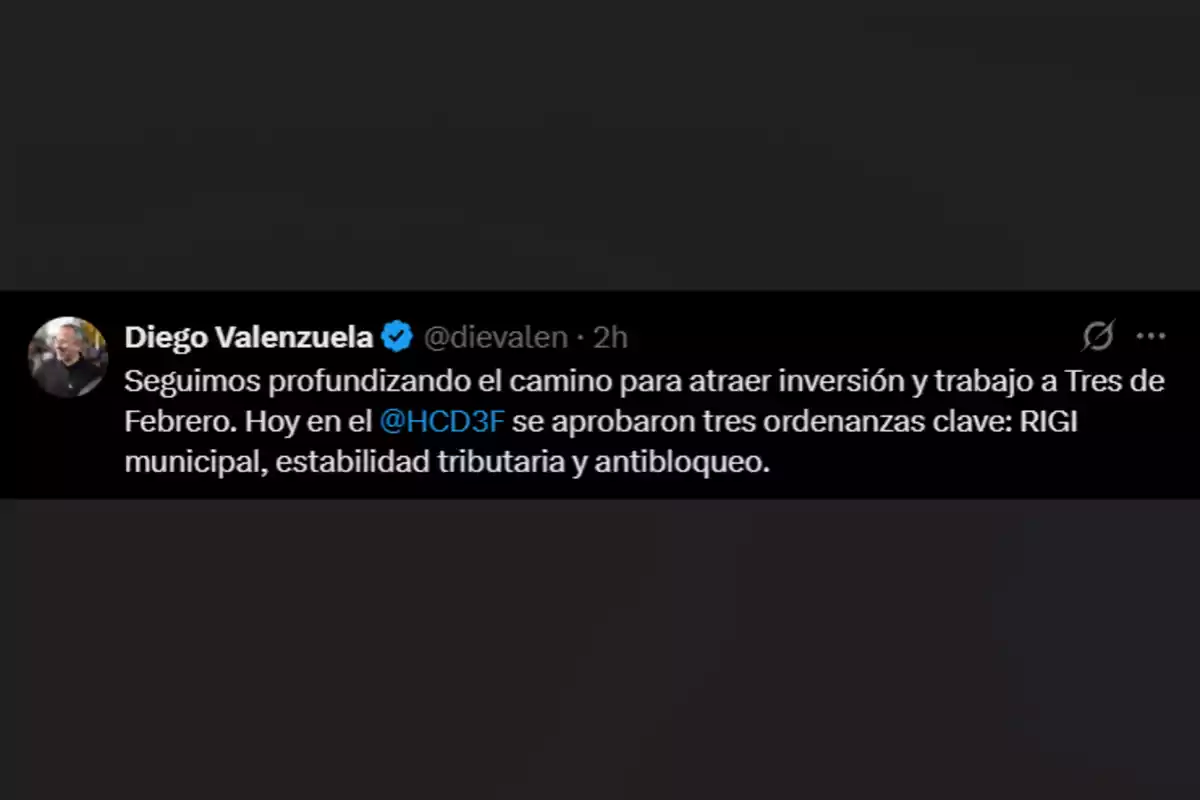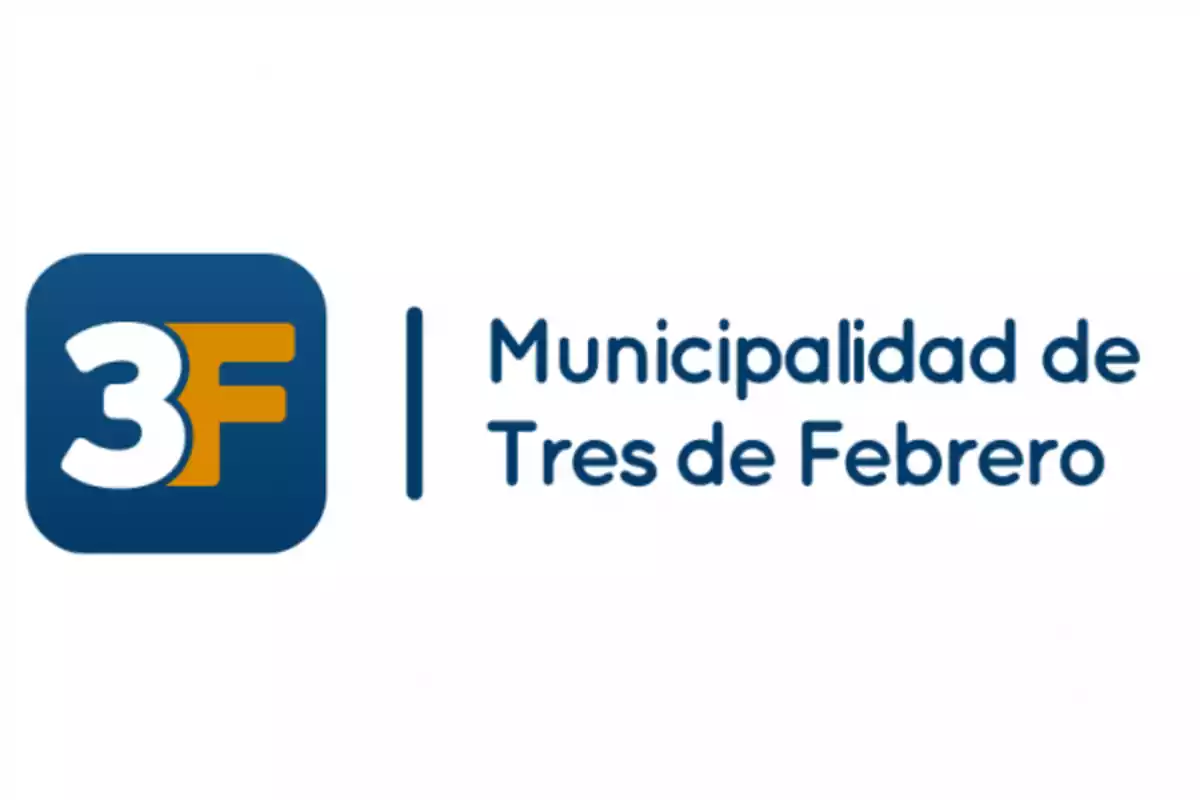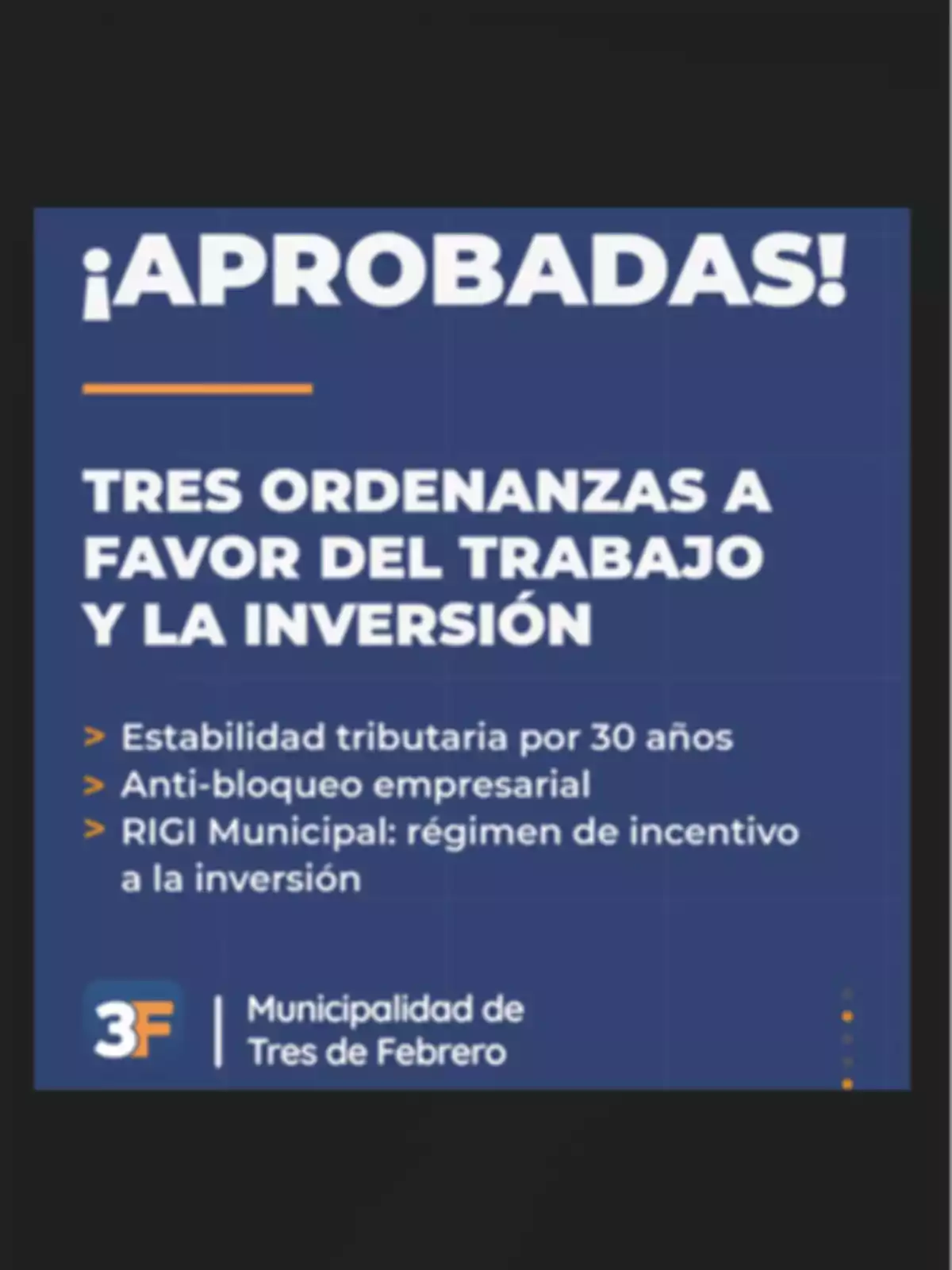
Tres de Febrero municipality launches the country's first municipal RIGI
The deliberative council of Tres de Febrero approved the new RIGI, and the opposition bloc of UxP left the chamber
In an unprecedented event for the province of Buenos Aires, the district of Tres de Febrero became on Friday, June 13the first Argentine municipality to implement a local Investment Generation Incentive Regime (RIGI), taking as a model the successful national scheme promoted by President Javier Milei. The measure, fully supported by the local administration, seeks to consolidate an environment of economic freedom, low tax pressure, and legal certainty to attract capital, generate employment, and structurally transform the district's productive matrix.
The historic session of the Honorable Deliberative Council took place in a heated atmosphere due to the recent confirmation of the conviction of Cristina Fernández de Kirchner and the violent destruction perpetrated by Kirchnerist activists at the TN studios. In that context, opposition councilors decided to leave the chamber and avoid the debate, refusing to vote on the package of ordinances that includes the municipal RIGI, a tax stability regime for three decades, and an anti-blockade mechanism to guarantee the operation of companies.

Despite the opposition's withdrawal, the ruling bloc—with its 15 seats—achieved unanimous approval of the initiatives. "With a modern fiscal policy and lower taxes, we attract companies and generate private investment," celebrated Mayor Diego Valenzuela after the vote.
The new municipal RIGI establishes progressive tax exemptions to attract both new investments and to reward companies already established that decide to expand their operations. Industries that set up in Tres de Febrero and invest between 10 and 20 million dollars will be completely exempt for one year from paying the Safety and Hygiene Inspection Fee (TISH) and will receive a 50% discount for the following nine years. If the company is already operating in the district, the 50% benefit is extended for ten years.

For those who invest more than 20 million dollars, the incentive is even greater: one year of total exemption and 14 years with a 50% reduction. Companies already established that reach that level of investment will receive the same benefit for 15 years. In addition, firms that generate more than 100 jobs will enjoy the same regime, which reinforces the positive impact on the local labor market.
As a complement, a 30-year tax stability ordinance was approved, an unprecedented tax shield in the municipality's history: during that period, the TISH can't be increased, which guarantees long-term fiscal predictability for the private sector.

In line with the values of freedom and order promoted by the national government, the municipality will also implement a business anti-blockade system, which will penalize acts of union coercion or picketing that prevent the entry or exit of people, vehicles, or goods in industrial, commercial, logistics, or service establishments. If a blockade is verified, a misdemeanor will be enabled that will allow its removal with police intervention.
"It is designed to generate a thriving and tax-competitive Tres de Febrero, to promote a culture of work and the freedom of companies to invest so that the district can grow," explained Valenzuela when presenting the complete package.
More posts: